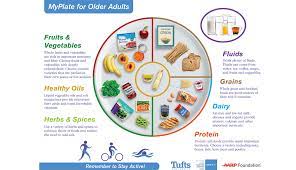As individuals age, maintaining a nutritious diet becomes increasingly crucial for overall health and well-being. Proper nutrition supports vital bodily functions, helps manage chronic conditions, and enhances the quality of life in the elderly. Let’s explore essential nutritional guidelines to promote healthy eating for the elderly.
Introduction
Healthy eating plays a pivotal role in maintaining optimal health as we age. Adequate nutrition supports energy levels, immune function, and disease prevention. Following specific guidelines tailored to the nutritional needs of the elderly can contribute to improved health outcomes and a higher quality of life.
Prioritize Nutrient-Dense Foods
As metabolism tends to slow with age, it becomes vital to prioritize nutrient-dense foods. These are foods rich in vitamins, minerals, fiber, and other essential nutrients without excess calories. Examples include fruits, vegetables, whole grains, lean proteins, and dairy or dairy alternatives.
Adequate Protein Intake
Protein is crucial for maintaining muscle mass, bone health, and supporting the immune system. Incorporate protein-rich foods such as lean meats, poultry, fish, eggs, dairy, legumes, and nuts into daily meals. Protein needs may increase for the elderly to prevent muscle loss and support overall health.
Hydration is Key
Staying hydrated is essential for all age groups, but it becomes especially important for the elderly. Adequate water intake supports digestion, kidney function, and cognitive performance. Encourage regular water consumption and include hydrating foods like fruits and vegetables in the diet.
Emphasize Fiber-Rich Foods
Fiber contributes to digestive health and helps prevent constipation, a common issue in the elderly. Include fiber-rich foods like whole grains, fruits, vegetables, legumes, and nuts to promote regular bowel movements and support a healthy gut.
Calcium and Vitamin D for Bone Health
Bone health becomes a priority as individuals age. Ensure an adequate intake of calcium and vitamin D to support bone density and reduce the risk of fractures. Dairy products, fortified plant-based milk, leafy greens, and fatty fish are excellent sources of these nutrients.
Limit Sodium and Processed Foods
Reducing sodium intake is crucial for managing blood pressure and heart health. Encourage the elderly to limit processed foods, canned soups, and salty snacks. Instead, opt for fresh, whole foods and use herbs and spices for flavoring.
Be Mindful of Vitamin B12
Vitamin B12 absorption may decrease with age, leading to deficiencies. Include sources of vitamin B12 such as fortified cereals, lean meats, fish, and dairy products in the diet. In some cases, supplements may be recommended, especially for those following vegetarian or vegan diets.
Monitor Sugar Intake
Controlling sugar intake is essential for managing weight and preventing chronic conditions like diabetes. Limit the consumption of sugary snacks, beverages, and desserts. Opt for naturally sweet alternatives like fruits to satisfy sweet cravings.
Consider Individual Dietary Needs
Individual dietary needs can vary based on health conditions, medications, and personal preferences. For those with specific health concerns, consulting with a healthcare professional or a registered dietitian is advisable to tailor nutritional recommendations to individual needs.
Small, Frequent Meals
Elderly individuals may find it challenging to consume large meals. Encourage smaller, more frequent meals and snacks throughout the day to ensure adequate nutrition. This approach can help manage energy levels and prevent malnutrition.
Social and Enjoyable Eating
Eating is not only about nourishment but also about socializing and enjoying meals. Encourage social interactions during meals, as this can enhance appetite and overall well-being. Make meals enjoyable by incorporating favorite foods and flavors.
Address Specific Nutritional Concerns
Certain health conditions prevalent in the elderly, such as malabsorption issues or difficulty chewing, may impact nutritional intake. Addressing these concerns with appropriate modifications, such as choosing easily digestible foods or incorporating supplements, can help overcome nutritional challenges.
Regular Health Checkups
Regular health checkups are crucial for monitoring nutritional status, identifying deficiencies, and adjusting dietary recommendations accordingly. Routine visits to healthcare professionals can ensure that the elderly receive personalized and timely nutritional guidance.
Conclusion
In conclusion, healthy eating for the elderly is essential for promoting overall health, managing chronic conditions, and enhancing the quality of life. By prioritizing nutrient-dense foods, staying hydrated, and addressing individual dietary needs, the elderly can enjoy a well-balanced and nourishing diet that supports their unique nutritional requirements.

